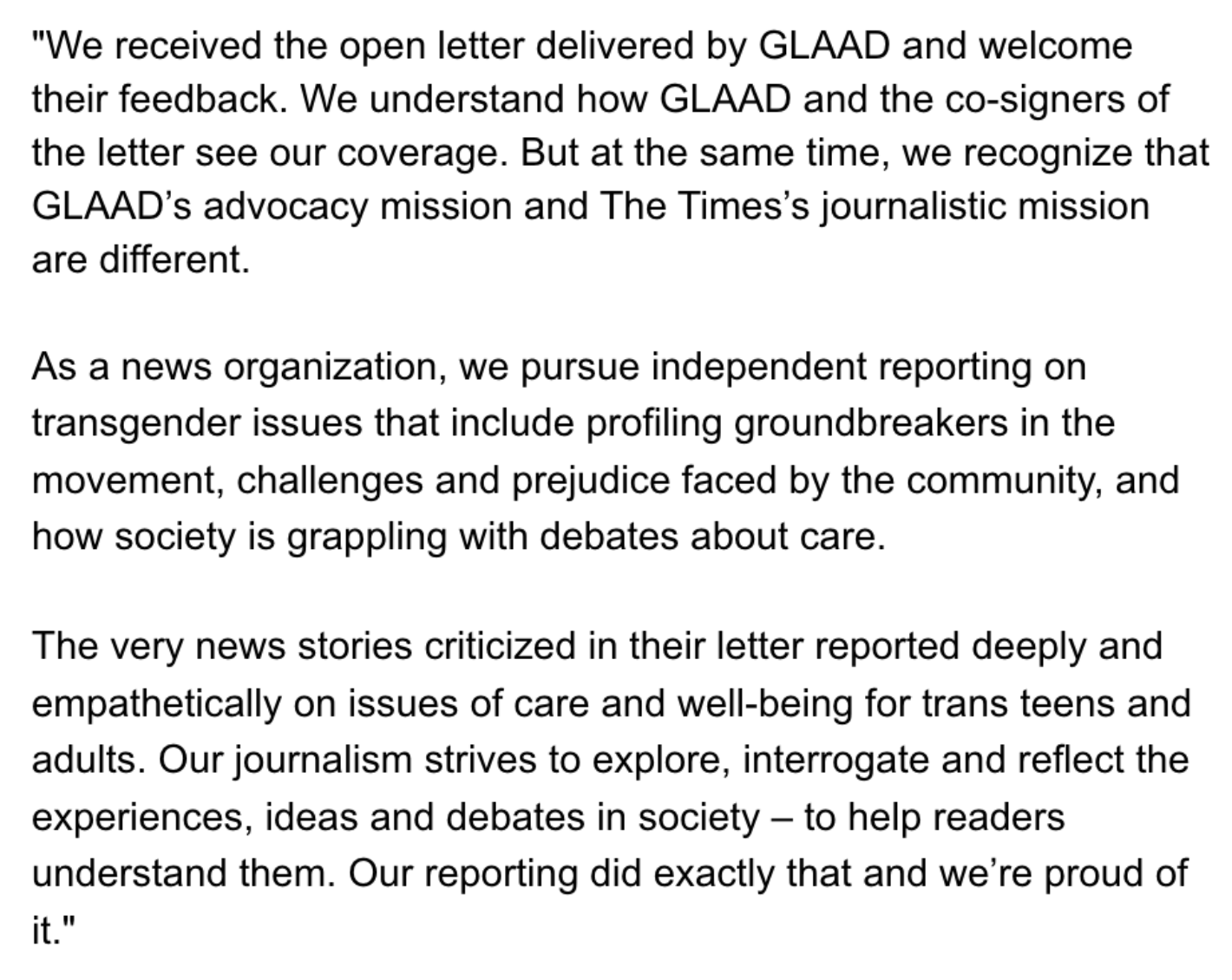NYT’s Continued Meaningful Discussion of Transgender Issues
Apparently, the memo has gone out that we can start relying on common sense again. Pamela Paul, writing at the NYT, discusses the bizarre and unfair campaign of threatened violence against J.K. Rowling. Perhaps this is the beginning of what surely should be a more productive conversation that recognizes the reality of the two biological sexes:
So why would anyone accuse her of transphobia? Surely, Rowling must have played some part, you might think.
The answer is straightforward: Because she has asserted the right to spaces for biological women only, such as domestic abuse shelters and sex-segregated prisons. Because she has insisted that when it comes to determining a person’s legal gender status, self-declared gender identity is insufficient. Because she has expressed skepticism about phrases like “people who menstruate” in reference to biological women. Because she has defended herself and, far more important, supported others, including detransitioners and feminist scholars, who have come under attack from trans activists. And because she followed on Twitter and praised some of the work of Magdalen Berns, a lesbian feminist who had made incendiary comments about transgender people.
You might disagree — perhaps strongly — with Rowling’s views and actions here. You may believe that the prevalence of violence against transgender people means that airing any views contrary to those of vocal trans activists will aggravate animus toward a vulnerable population.
But nothing Rowling has said qualifies as transphobic. She is not disputing the existence of gender dysphoria. She has never voiced opposition to allowing people to transition under evidence-based therapeutic and medical care. She is not denying transgender people equal pay or housing. There is no evidence that she is putting trans people “in danger,” as has been claimed, nor is she denying their right to exist.
Take it from one of her former critics. E.J. Rosetta, a journalist who once denounced Rowling for her supposed transphobia, was commissioned last year to write an article called “20 Transphobic J.K. Rowling Quotes We’re Done With.” After 12 weeks of reporting and reading, Rosetta wrote, “I’ve not found a single truly transphobic message.” On Twitter she declared, “You’re burning the wrong witch.”
On Feb 15, 2023, GLAAD and its allies sent a letter to the NYT, broadcasting clearly that they don't want people to have real conversations about transgender topics. They insist that there is only one side to the story, and their allies have done their damndest to silence anyone with a differing viewpoint with shame, cancelation, economic loss and violence. GLAAD's letter was signed by more than a few people who have written for the New York Times. I waited with interest, curious about how the NYT would respond. The NYT response was very difficult to find on Google, which pretends to be an unbiased search engine, but was worth the wait:
The NYT also released this message that they will not tolerate the authoritarian tactics of those who pretend to seek to discuss trans issues:


